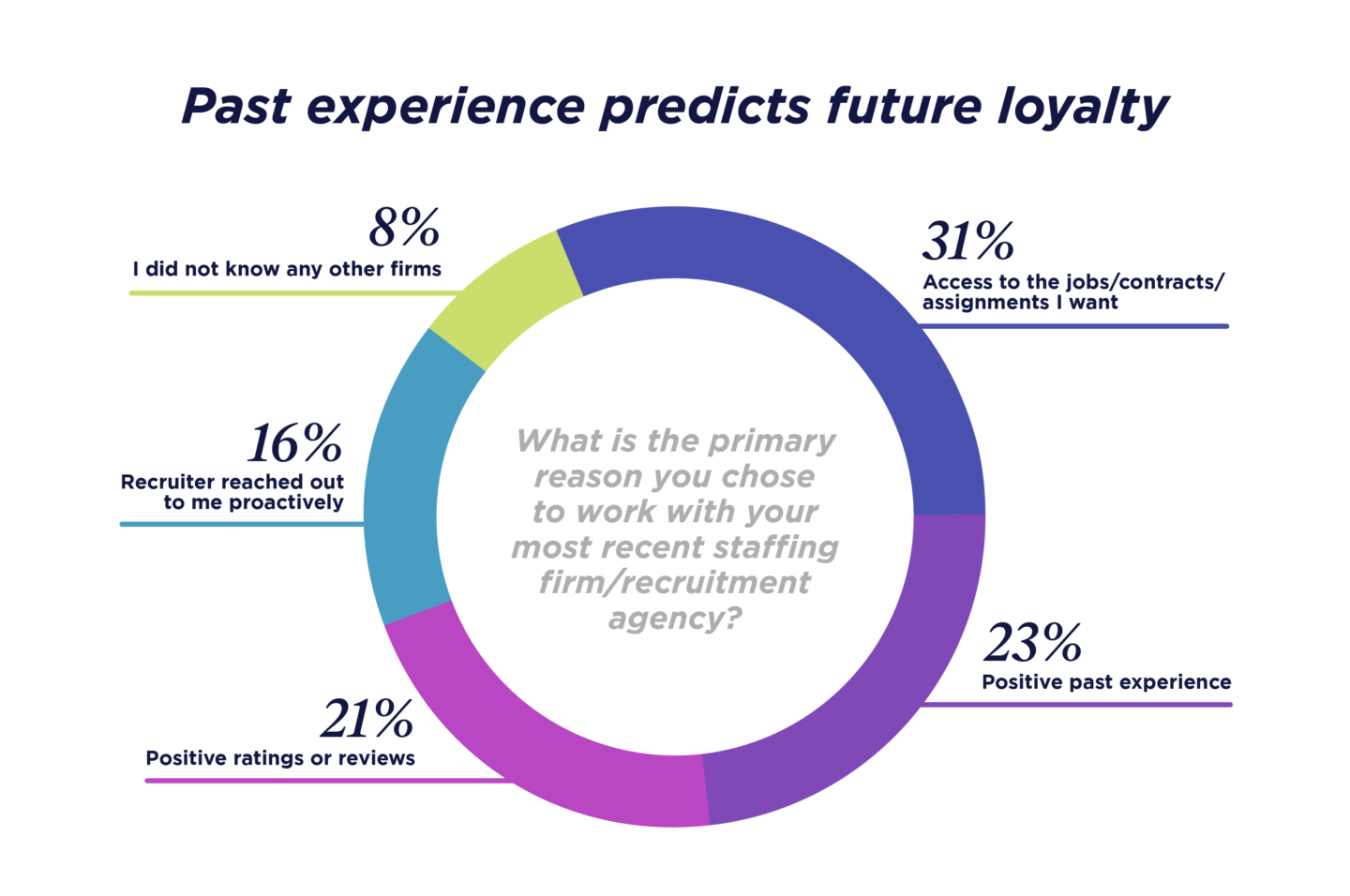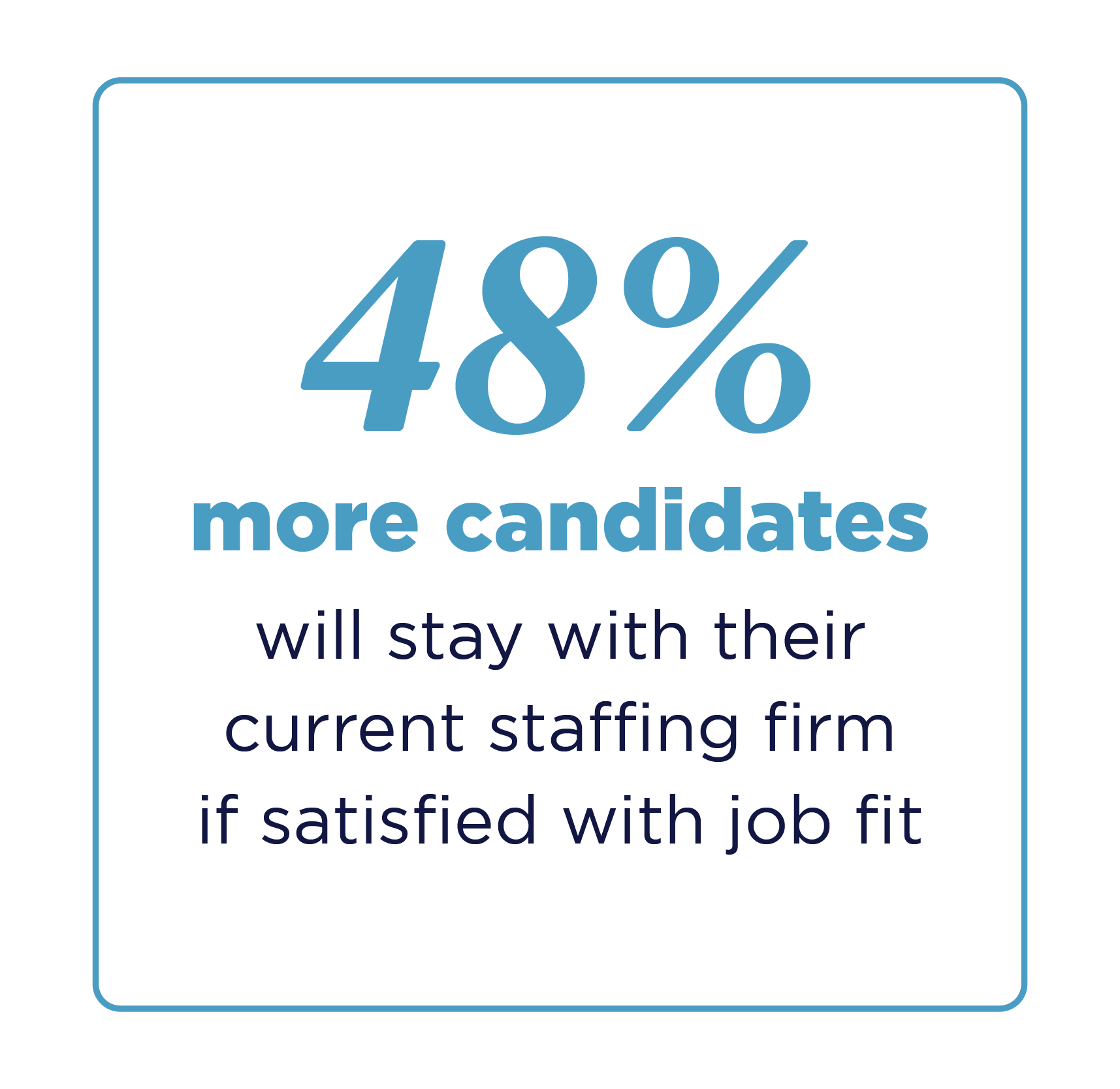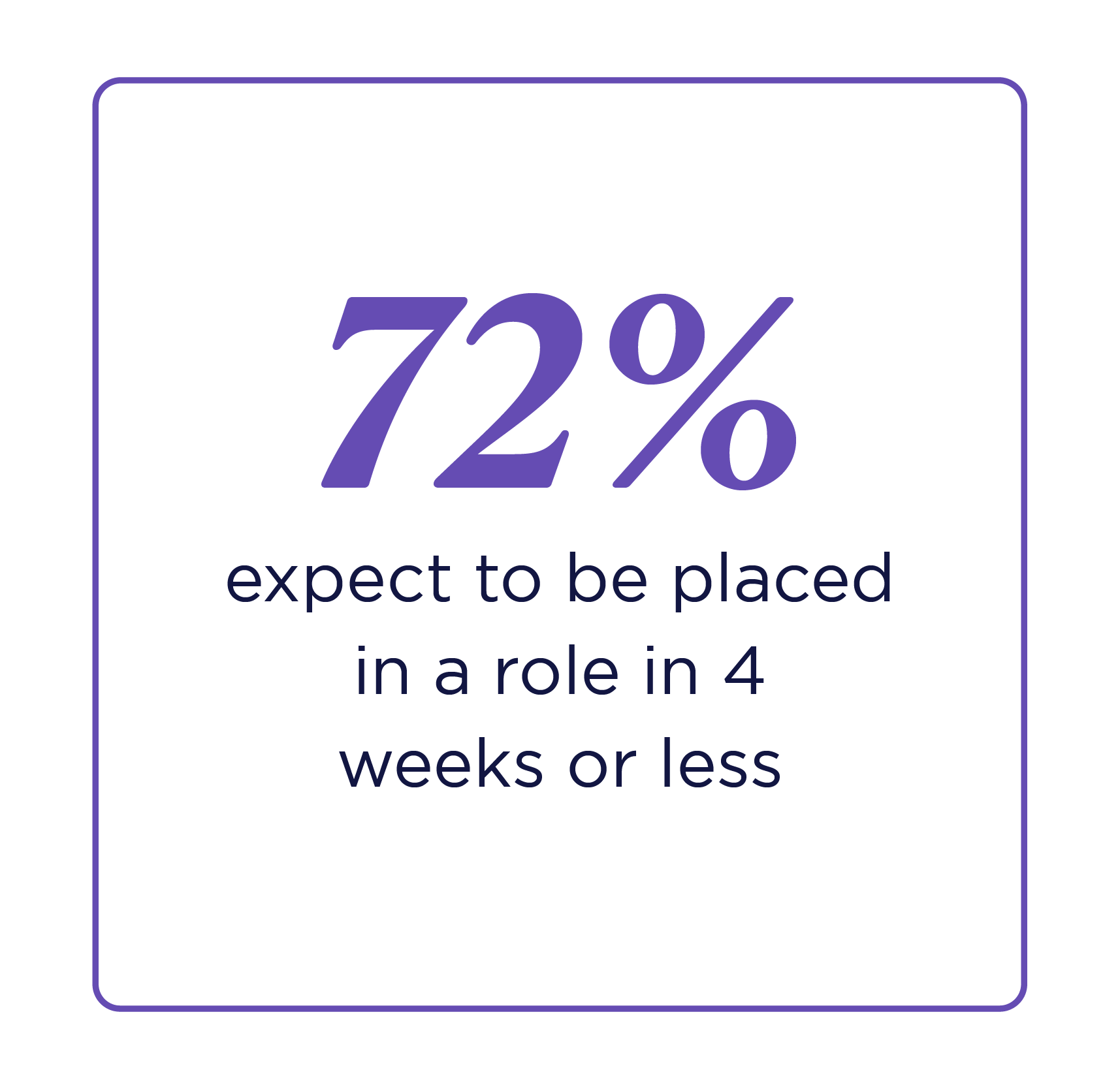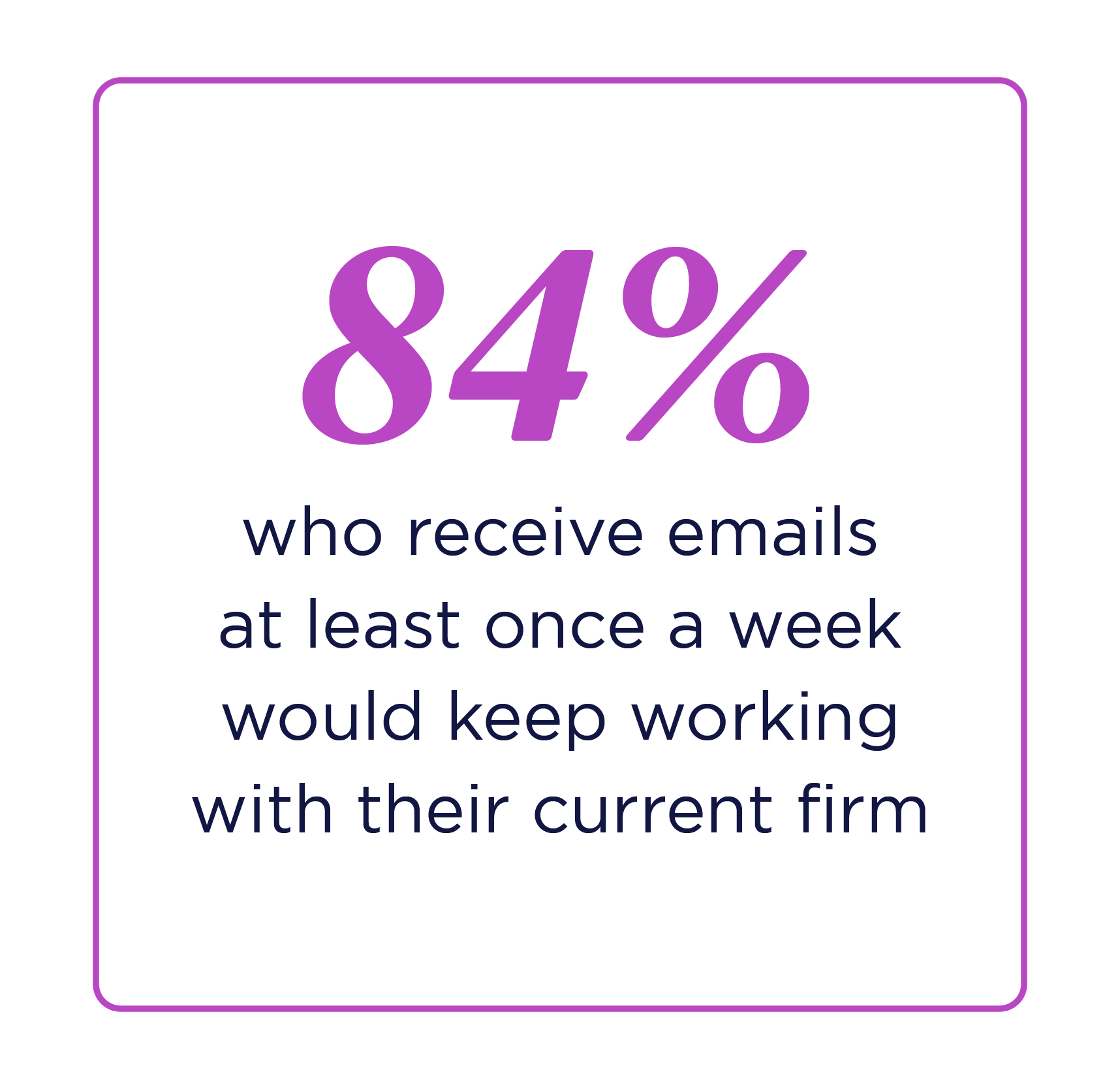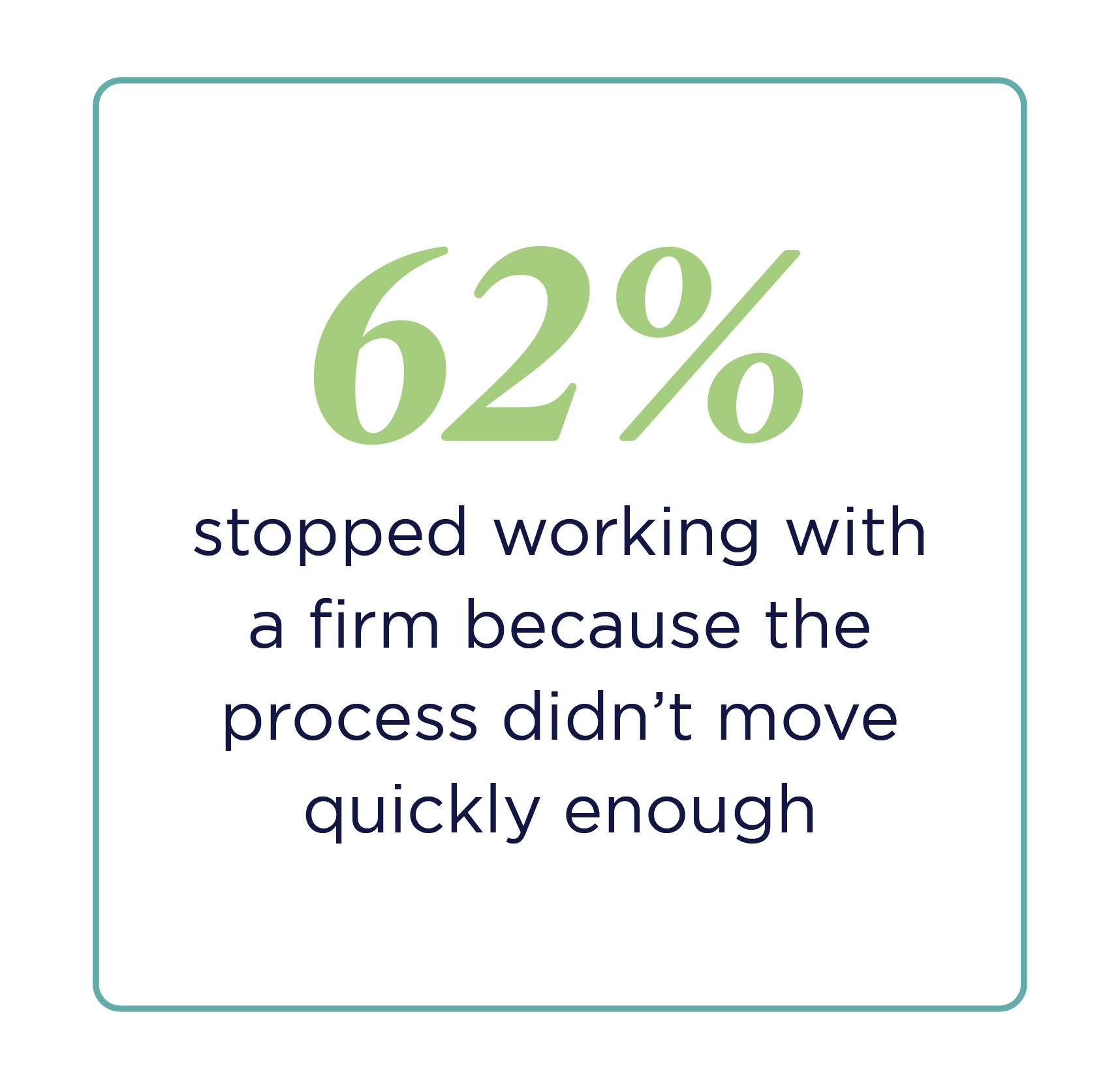Candidates want the right jobs, and they rely on reviews to decide if the firm can deliver
A little less than half of respondents chose a staffing firm based on positive past experience — their own or that of someone rating their experience with the firm. Second only to having the right jobs available, creating a positive candidate experience is a huge factor in attracting and retaining talent. Firms should make sure they are investing in reputation management solutions and actively driving positive reviews.
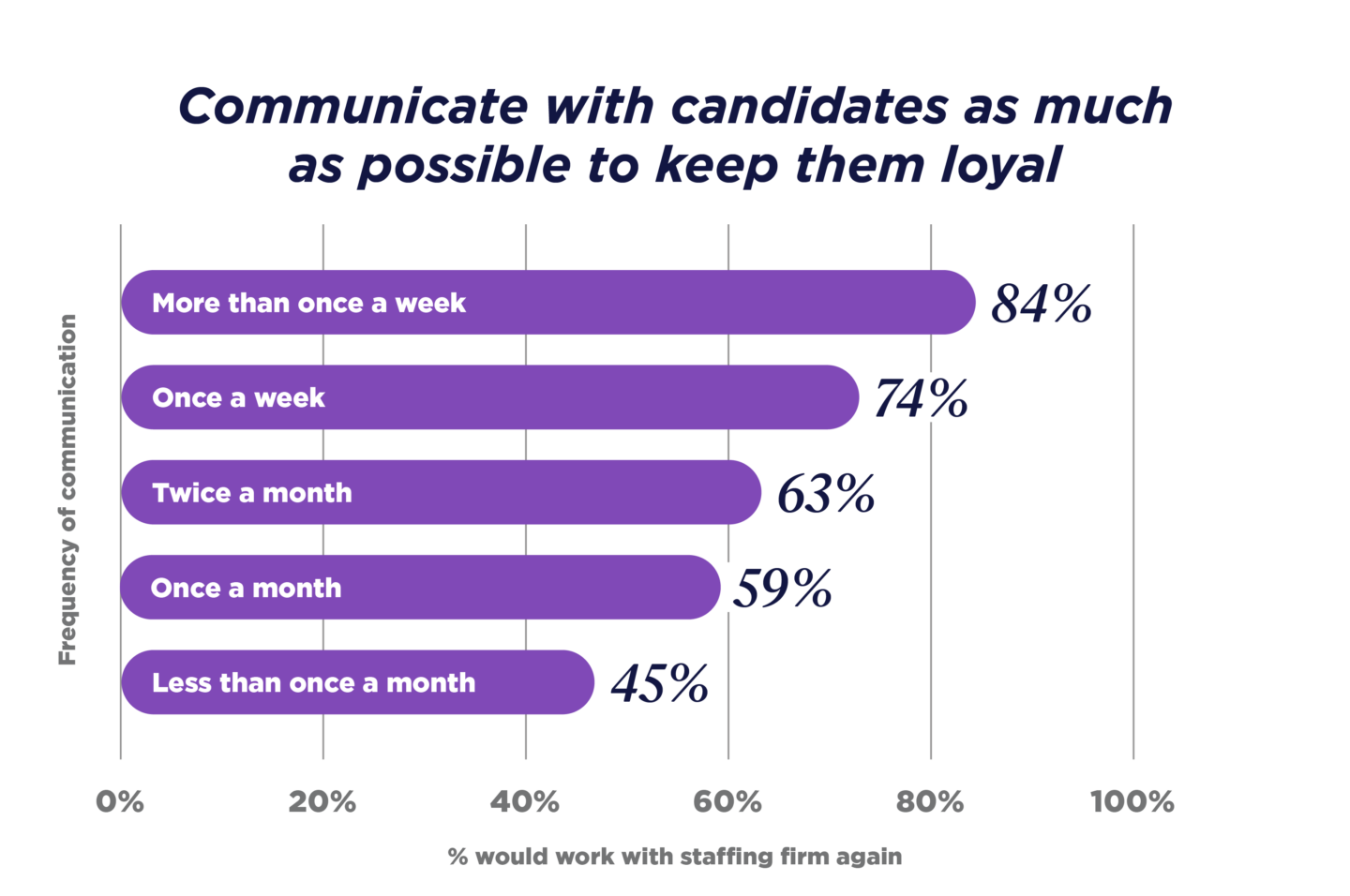
Candidates want weekly communication
When asked if they would be willing to work with a staffing firm again, candidates who received the most outreach and attention from recruiters were the most likely to say yes. Candidate loyalty increases to 80% when recruiters reached out to them with a new opportunity before their last assignment ends. Technology makes it possible for recruiters to meet this goal, which is why Bullhorn sees a 53% increase in redeployment rates for staffing firms who automate their processes.
Only half of recruiters are reaching out at least once a week — by ramping up communication, firms can really stand out and improve redeployment rates. With over a quarter of candidates only hearing from their recruiter once a month or less, there is a huge risk of talent loss at a time when staffing firms can ill afford it.
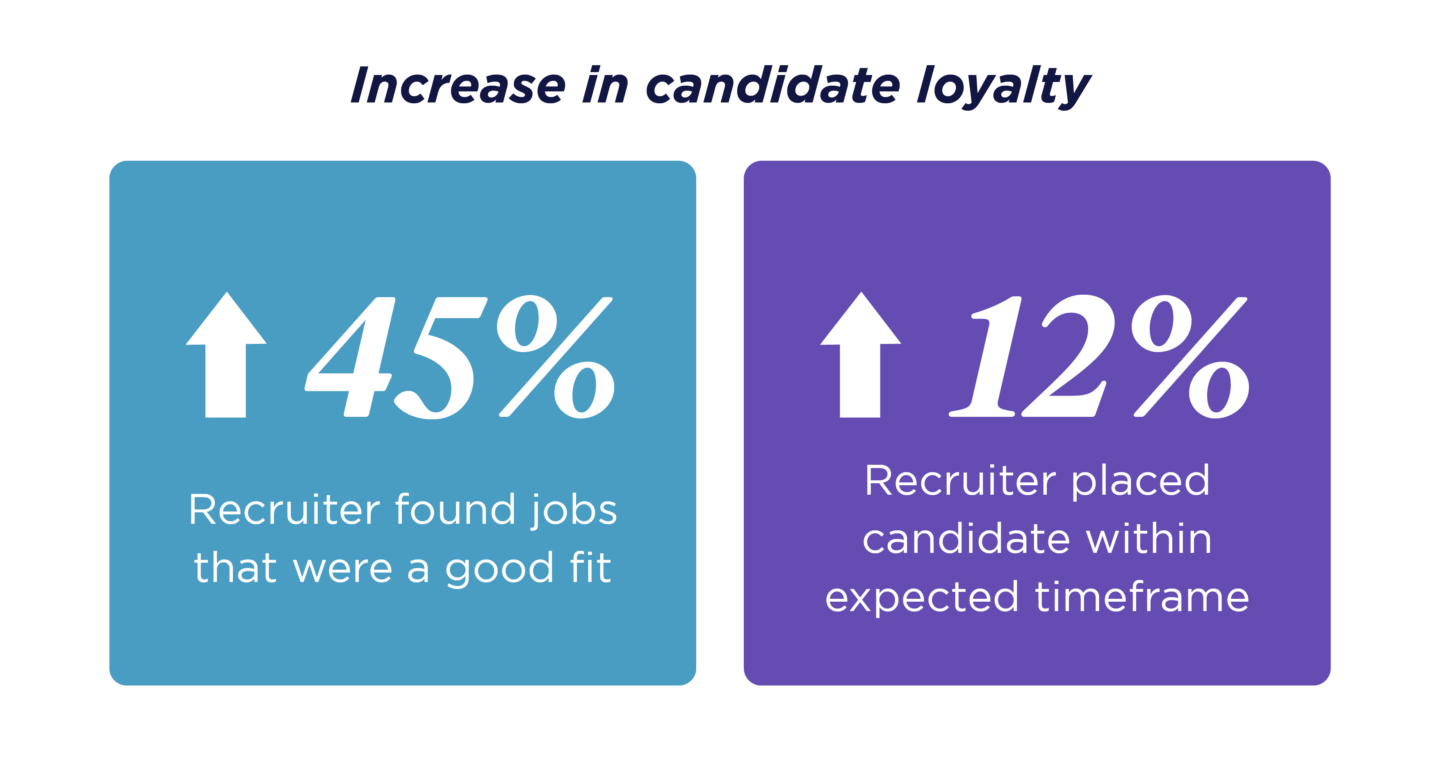
Candidates expect to be placed quickly
Quick placement in the right job is top of the priority list for most candidates and has the biggest impact on candidate loyalty. 22% of contract workers expect to be placed within a week of their first contact with the staffing firm — and nearly three-quarters of candidates expect placement in 1-4 weeks. Chances are most candidates are hoping for the lower end of that range. Right now, recruiters are placing temp candidates in about two weeks, exceeding the 4-week expectation, but falling a bit short of the 1-week target. Firms should be looking for ways to streamline the process, arming their recruiters with technology to make job matching faster and more accurate to retain and redeploy talent.
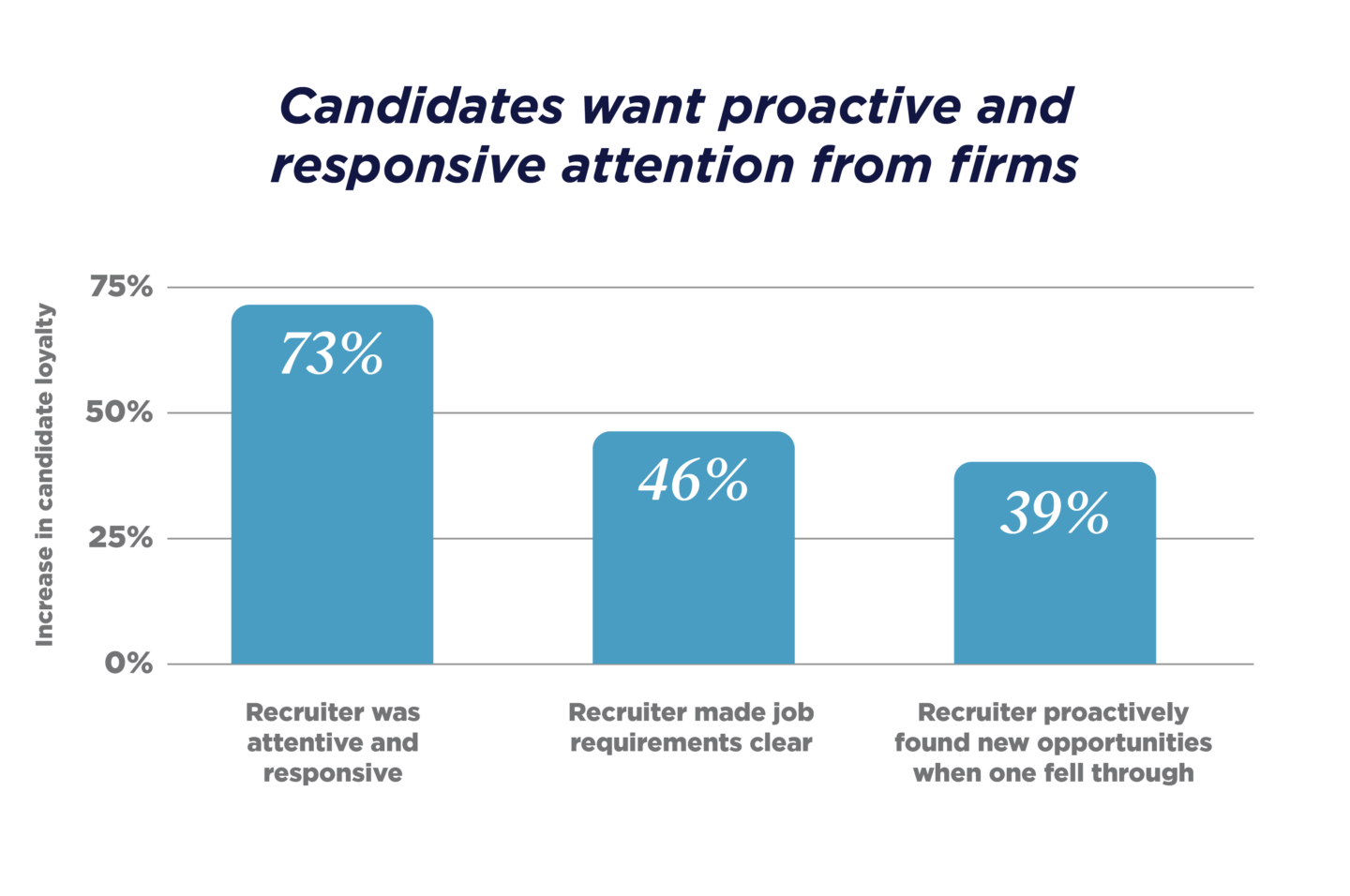
Candidates are 73% more likely to keep working with a firm if they found their recruiter to be attentive and responsive
Much of what creates a positive candidate experience and builds loyalty is within the control of staffing firms, either through automation or human effort. When recruiters proactively line up new opportunities, candidates are nearly 40% more likely to stay loyal to the firm — and automation can make it easy for recruiters to meet this expectation.
Firms should also take note of how candidates want that attention — 44% of all candidates list email as their top choice. It should be noted that this differs regionally, with as many as one-quarter of candidates preferring WhatsApp in some areas of Europe. Those that keep candidates engaged on their preferred channels will retain the most talent.
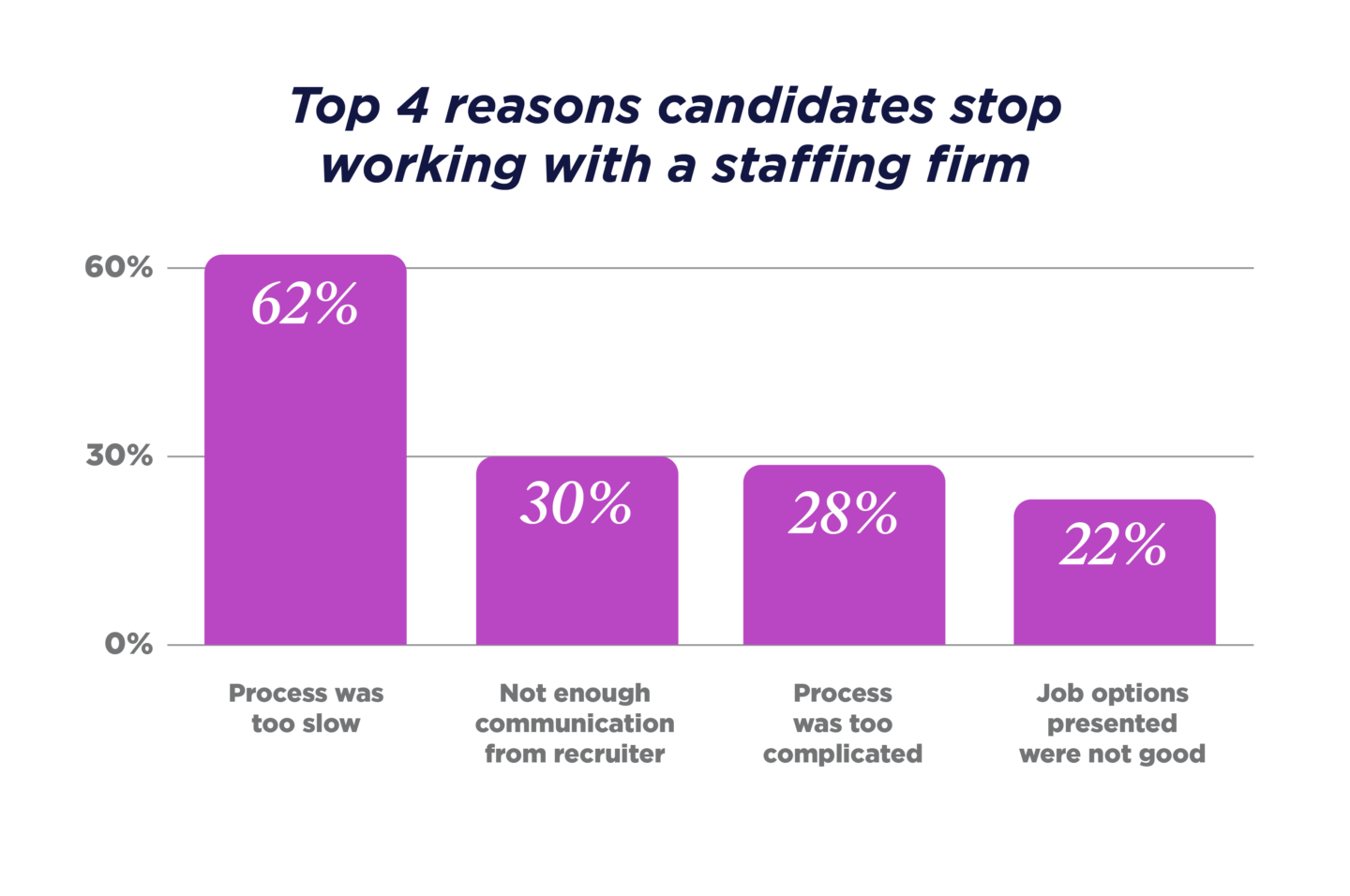
What drives talent away?
It is worth noting that 62% of candidates stopped working with a staffing firm for reasons related to speed: either the process was taking too long or they found another job before the firm was able to complete the process. Speeding up the process could go a long way toward retaining talent and building loyalty.
More than a quarter found the process was too complicated and 22% were dissatisfied with the job matching. Deploying the right technology can improve performance in all these areas, and free recruiters up to focus on communication and candidate engagement.
Download report highlights
Looking to share these findings with your colleagues or include them in presentations?
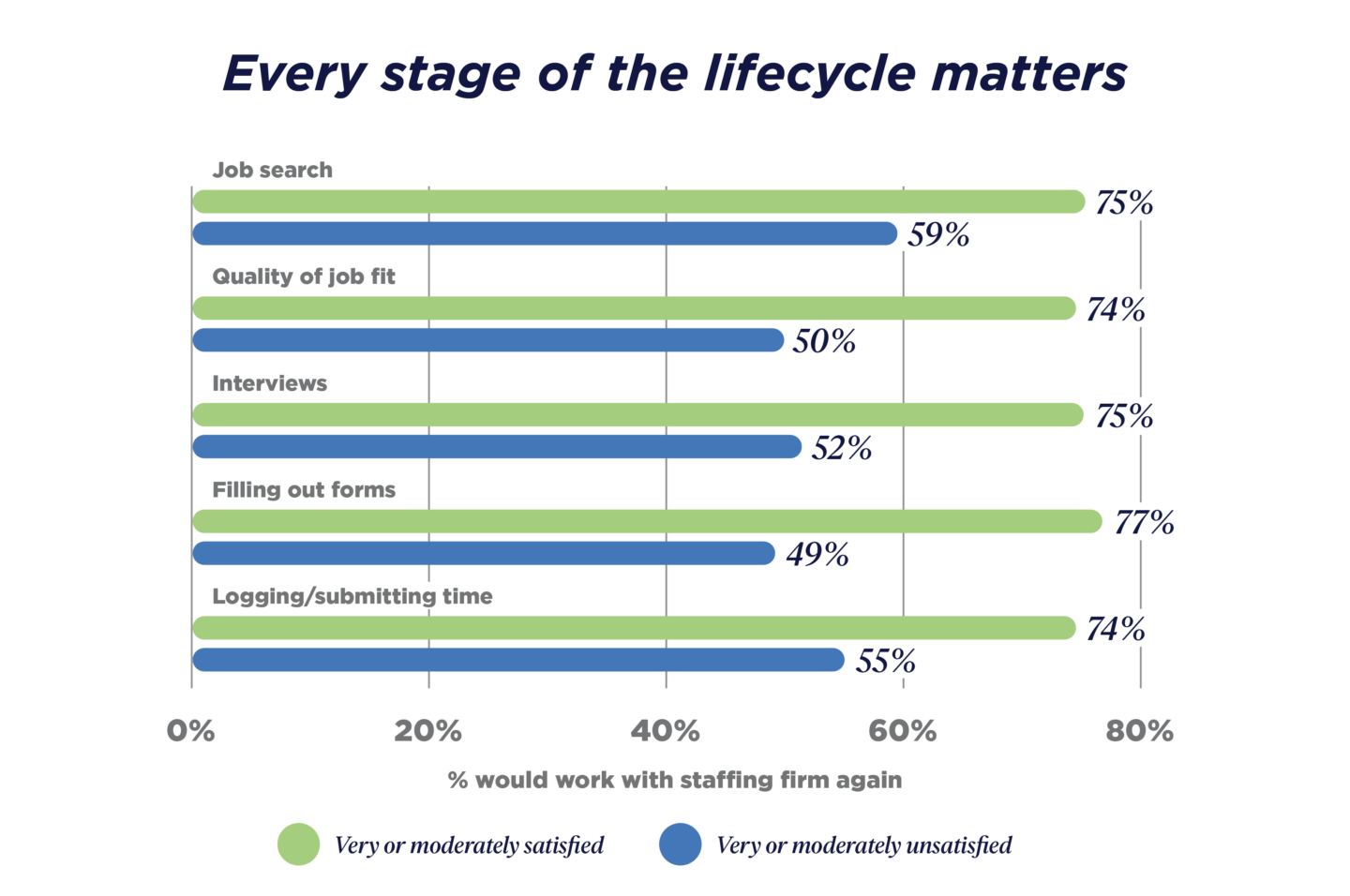
Candidate experience at all stages of recruitment significantly impacts loyalty
Every stage of the recruitment cycle affects the candidate experience and, as a result, their willingness to continue working with a staffing firm — it is crucial to get them all right. In some cases, candidates who were satisfied with a given phase of the cycle were nearly 60% more likely to remain with the same firm in the future. Filling out forms is a particular weak point in the cycle potentially leading to a loss of talent. In fact, candidates who had a positive onboarding experience with respect to forms were 57% more likely to keep working with their current staffing firm. Firms should lean into automation to make this step easier for candidates.
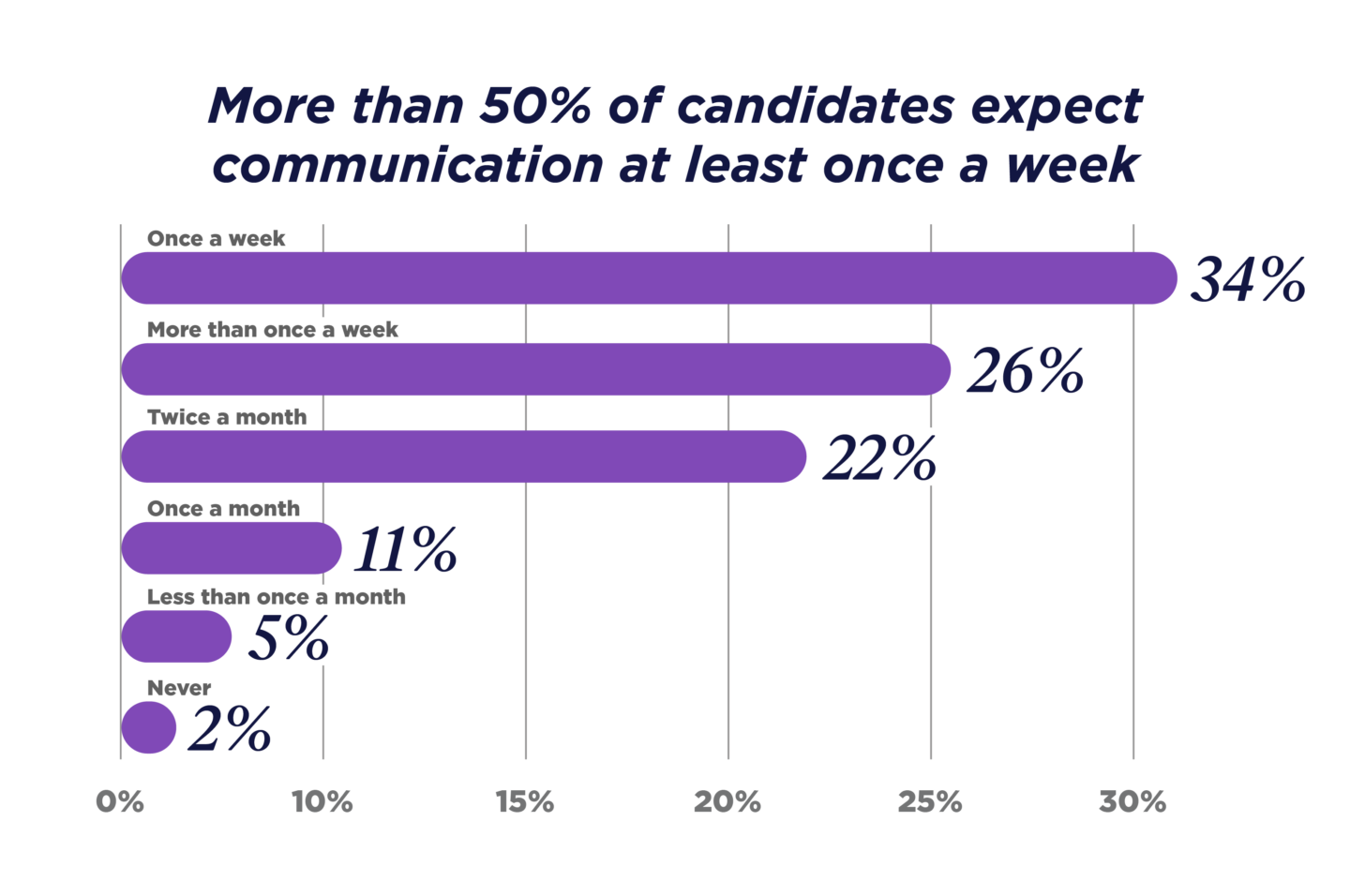
How often would you like your recruiter to reach out to you with opportunities?
Most candidates report recruiters are communicating with them less than they would like — 4% say their recruiters never reached out to them, and that jumps to 9% when they are actually on assignment. The sweet spot really seems to be weekly communication while looking and while on assignment — a rate that is really only possible through automation. Given the correlation with candidate loyalty and redeployment rates, it is especially important for firms to focus on contacting candidates with new opportunities before their current assignment ends — something fully 20% of respondents say did not happen for them.
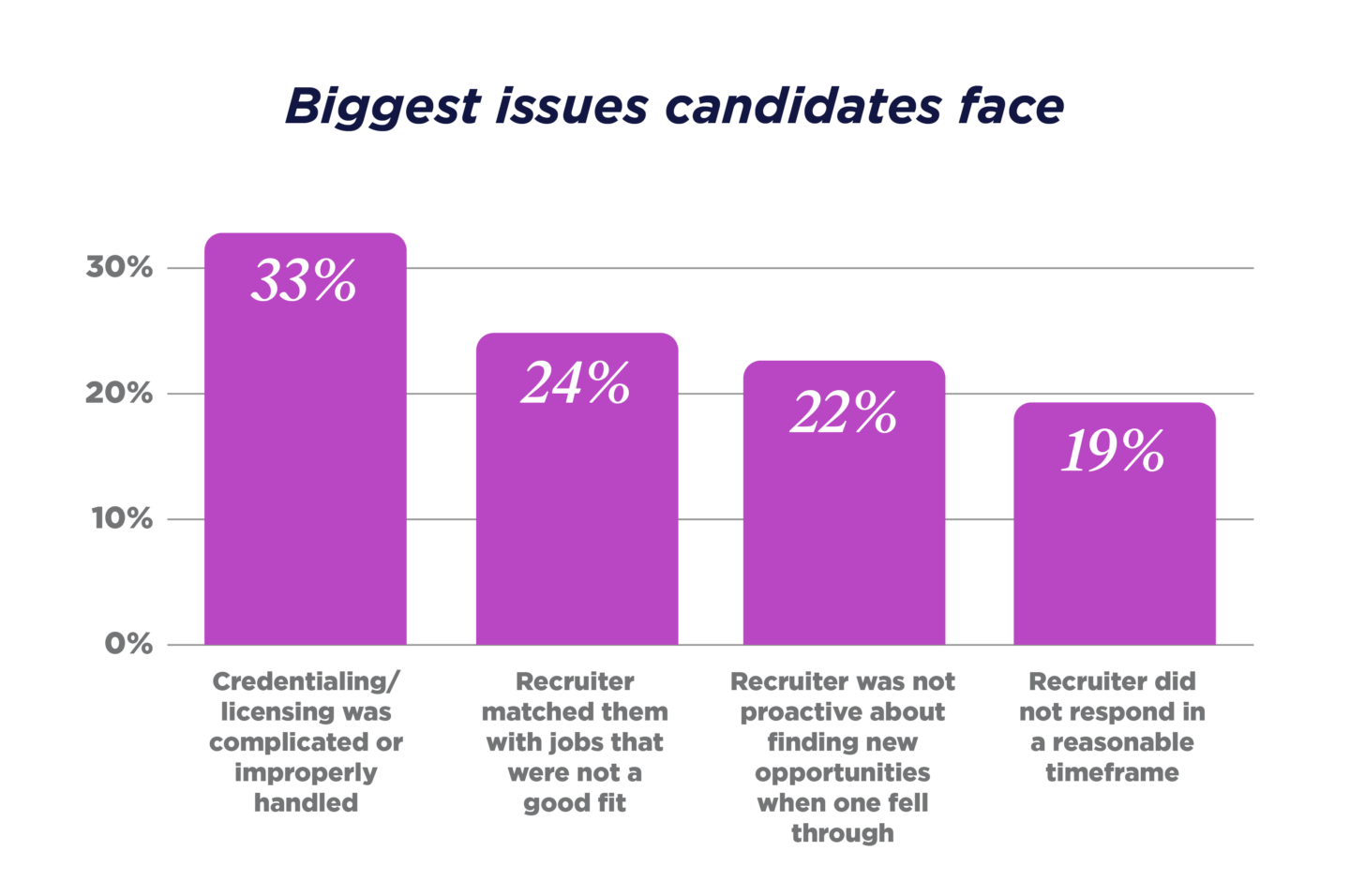
Most recent experience with a staffing firm leaves opportunities to improve
73% of candidates who said signing and submitting paperwork was mostly automated indicated they would work with their staffing firm again — as compared to 61% of those for whom the task was largely manual. Offering convenient, self-service technology throughout the process can enhance the candidate experience by removing friction and can make the recruitment process more efficient, yielding substantial cost savings for staffing firms.
When asked to describe their most recent experience with a staffing firm, fully one-third of respondents cite issues with their credentials or licensing. And nearly one-quarter were not satisfied with the job matching offered by the recruiter. These are areas where highly successful staffing firms can really focus their attention and stand out from the rest of the market.

